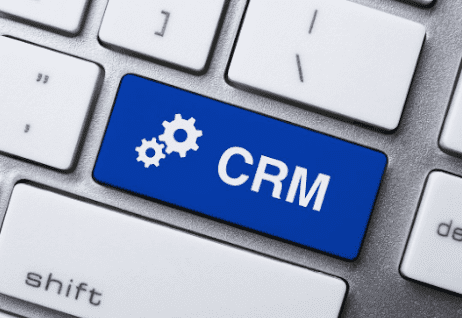Types of White Label CRM, What You Need to Know!
"In today's fast-paced and fiercely competitive business world, maintaining strong customer relationships and driving business growth is paramount. However, finding the perfect CRM solution that aligns precisely with a business's unique branding and needs can be a challenge. Enter white label CRM—a game-changing concept that can make all the difference.
This comprehensive guide will delve into the world of white label CRM, exploring its benefits, implementation strategies, and how it empowers businesses to create personalized and tailored CRM experiences. Whether you're a small startup or a large enterprise, this guide equips you with the knowledge and insights to harness the power of white label CRM and take your customer relationships to new heights.
Empowering Businesses with Customization: Understanding White Label CRM
White label CRM refers to a fully customizable and rebrandable CRM solution that aligns perfectly with a business's identity. Unlike traditional CRM systems with limited customization options, white label CRM enables businesses to create a CRM platform that reflects their brand, values, and workflows. With this level of customization, businesses can leverage the power of personalization to tailor the CRM experience and meet their specific needs.
The Power of Customization: Elevating Your CRM Experience
At the heart of white label CRM lies the power of customization. It allows businesses to transcend the limitations of out-of-the-box CRM solutions and develop a CRM platform that seamlessly fits their processes. Through customization, businesses can:
1. Enhance Branding
Incorporate brand elements like logos, color schemes, and fonts into the CRM interface, reinforcing brand identity and providing customers with a consistent brand experience.
2. Streamline Workflows
Customize the CRM interface and functionality to optimize workflows, increasing overall efficiency and productivity across the organization.
3. Improve User Adoption
A customized CRM system is more user-friendly and intuitive, leading to higher adoption rates among employees who view it as a valuable tool aligned with their company's unique terminology and workflows.
4. Drive Customer Engagement
Tailor the CRM to match customer preferences and needs, creating a customer-centric platform that fosters personalized experiences and stronger relationships.
Strategies for Successful Implementation of White Label CRM
Implementing a white label CRM solution requires thoughtful planning and execution. Here are key strategies to consider:
1. Assessing Your Business Needs
Before diving into white label CRM, assess your business needs and identify specific customization requirements to address existing CRM challenges. Clear goals and expectations streamline the customization process and align the CRM solution with your business objectives.
2. Choosing the Right White Label CRM Provider
Select a provider that offers a robust and flexible CRM platform, easily tailored to meet your unique requirements. Consider factors like scalability, ease of use, customer support, and integration capabilities. Checking references and customer reviews helps gauge the provider's reputation and track record.
3. Customizing the CRM Interface
Maximize the advantage of white label CRM by incorporating brand elements like logos, color schemes, and fonts into the CRM interface. A granular level of customization ensures a visually appealing and cohesive brand experience.
4. Tailoring Functionality and Workflows: Analyze existing business processes and optimize them through customizing data fields, adding new modules, and defining automation rules. This alignment with your unique workflows streamlines operations, enhances efficiency, and maximizes the CRM's value.
5. Training and Onboarding
Properly train your employees on the customized CRM system and ensure a smooth transition. Offer ongoing support and documentation to address any questions or challenges during the onboarding process, accelerating user adoption and reaping the full benefits of white label CRM.
FAQs about White Label CRM
To provide further clarity, here are some frequently asked questions about white label CRM:
FAQ 1: What are the key advantages of white label CRM?
White label CRM offers several advantages, including full customization and branding opportunities, tailored workflows and functionality, enhanced user adoption and engagement, consistent brand experience, and increased operational efficiency.
FAQ 2: Is white label CRM suitable for small businesses?
Absolutely, white label CRM is highly suitable for small businesses. It allows them to create a CRM platform tailored to their unique requirements and growth aspirations, optimizing processes, enhancing customer relationships, and driving growth.
FAQ 3: Can white label CRM be integrated with other business systems?
Yes, white label CRM can seamlessly integrate with other business systems like marketing automation, e-commerce platforms, and customer support tools. This integration enables businesses to streamline processes and gain a 360-degree view of their customers.
FAQ 4: How does white label CRM contribute to customer engagement?
White label CRM contributes to customer engagement by creating a personalized and tailored CRM experience. By customizing the CRM to match customer preferences and needs, businesses provide a seamless and personalized customer journey, leading to higher satisfaction, loyalty, and stronger relationships.
FAQ 5: Can I migrate my existing CRM data to a white label CRM system?
Yes, most white label CRM solutions offer data migration capabilities. You can migrate your existing CRM data to the new system with the help of your CRM provider or a third-party data migration service, ensuring data integrity and minimizing disruptions to your business operations.
FAQ 6: Is white label CRM suitable for industries with specific compliance requirements?
Absolutely, white label CRM can be customized to meet the specific compliance requirements of different industries, maintaining data security and privacy while adhering to industry-specific regulations.
Conclusion
White label CRM empowers businesses to take full control of their customer relationships and create CRM platforms that align perfectly with their branding and workflows. With the power of customization, businesses can enhance brand identity, streamline workflows, and drive customer engagement. When strategically implemented, white label CRM becomes a competitive edge in today's dynamic market.
If you seek a CRM solution that truly reflects your brand and meets your specific requirements, consider the transformative potential of white label CRM. Unleash the power of customization to set your business apart from the competition and propel your customer relationships to unparalleled heights."
